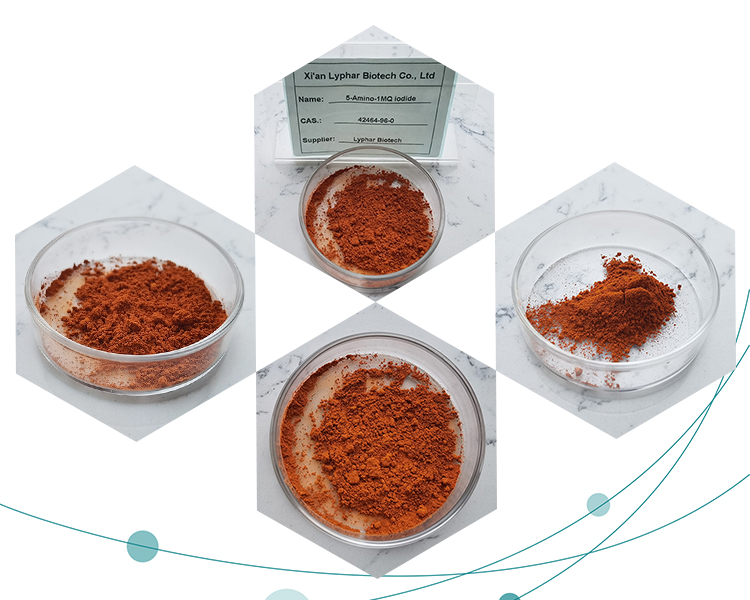5-Amino-1MQ Iodide is a compound that has generated interest primarily in the field of metabolic research. It’s a derivative of 5-amino-1-methylquinazoline, and research around this compound has been mainly focused on its potential role in modulating the enzyme NNMT (Nicotinamide N-methyltransferase), which is involved in various metabolic pathways.
Effectiveness of 5-Amino-1MQ Iodide:
Research on 5-Amino-1MQ Iodide, particularly in preclinical models, suggests that it can reduce the activity of NNMT, which may lead to:
- Improved metabolic health: By inhibiting NNMT, the compound may help to increase the levels of nicotinamide adenine dinucleotide (NAD+), a crucial coenzyme in cellular metabolism, potentially enhancing energy production and metabolic function.
- Fat loss: Some studies have suggested that inhibiting NNMT can enhance fat metabolism, leading to weight loss or improved fat distribution.
- Anti-aging effects: Since NNMT is involved in the breakdown of nicotinamide (which is related to NAD+ synthesis), inhibiting it might promote healthier aging by maintaining NAD+ levels, which decline with age.
However, most of the evidence for the compound’s effectiveness comes from animal studies, and more research is needed to fully confirm these effects in humans.

Side Effects of 5-Amino-1MQ Iodide:
Since 5-Amino-1MQ Iodide has not been widely studied in human clinical trials, the side effect profile is not well-documented. However, based on its mechanism of action (NNMT inhibition), potential side effects might include:
- Altered metabolic function: Long-term alteration of metabolic pathways might lead to unintended consequences, such as issues with energy balance or nutrient absorption.
- Digestive discomfort: Similar to other compounds affecting metabolic pathways, it could potentially cause nausea, diarrhea, or other gastrointestinal disturbances.
- Altered drug metabolism: Because NNMT is involved in the metabolism of other substances, its inhibition might affect the metabolism of drugs, possibly altering their effectiveness or increasing their side effects.
Special Considerations of 5-Amino-1MQ Iodide:
- Lack of Human Trials: The major limitation of 5-Amino-1MQ Iodide is the lack of comprehensive human studies. The majority of data on its effectiveness and safety comes from animal models, so there’s significant uncertainty about how it might behave in humans.
- Drug Interactions: Given that NNMT plays a role in drug metabolism, 5-Amino-1MQ Iodide could interact with other medications, particularly those metabolized by the liver.
- Use in Specific Populations: There are concerns about using such compounds in people with existing metabolic disorders, such as diabetes, because altering metabolic pathways could have unpredictable results. Pregnant or breastfeeding individuals should also exercise caution due to the lack of safety data.
- Regulatory Status: 5-Amino-1MQ Iodide is not widely approved or recognized by regulatory bodies like the FDA. Its use in supplements or treatments would be under scrutiny for safety and efficacy, as it is still in early stages of research.

In conclusion, while 5-Amino-1MQ Iodide shows promise in some areas of metabolic health, its full effectiveness, safety, and potential side effects in humans remain unclear. Anyone considering its use should consult a healthcare provider, especially due to the limited data on its long-term effects.
